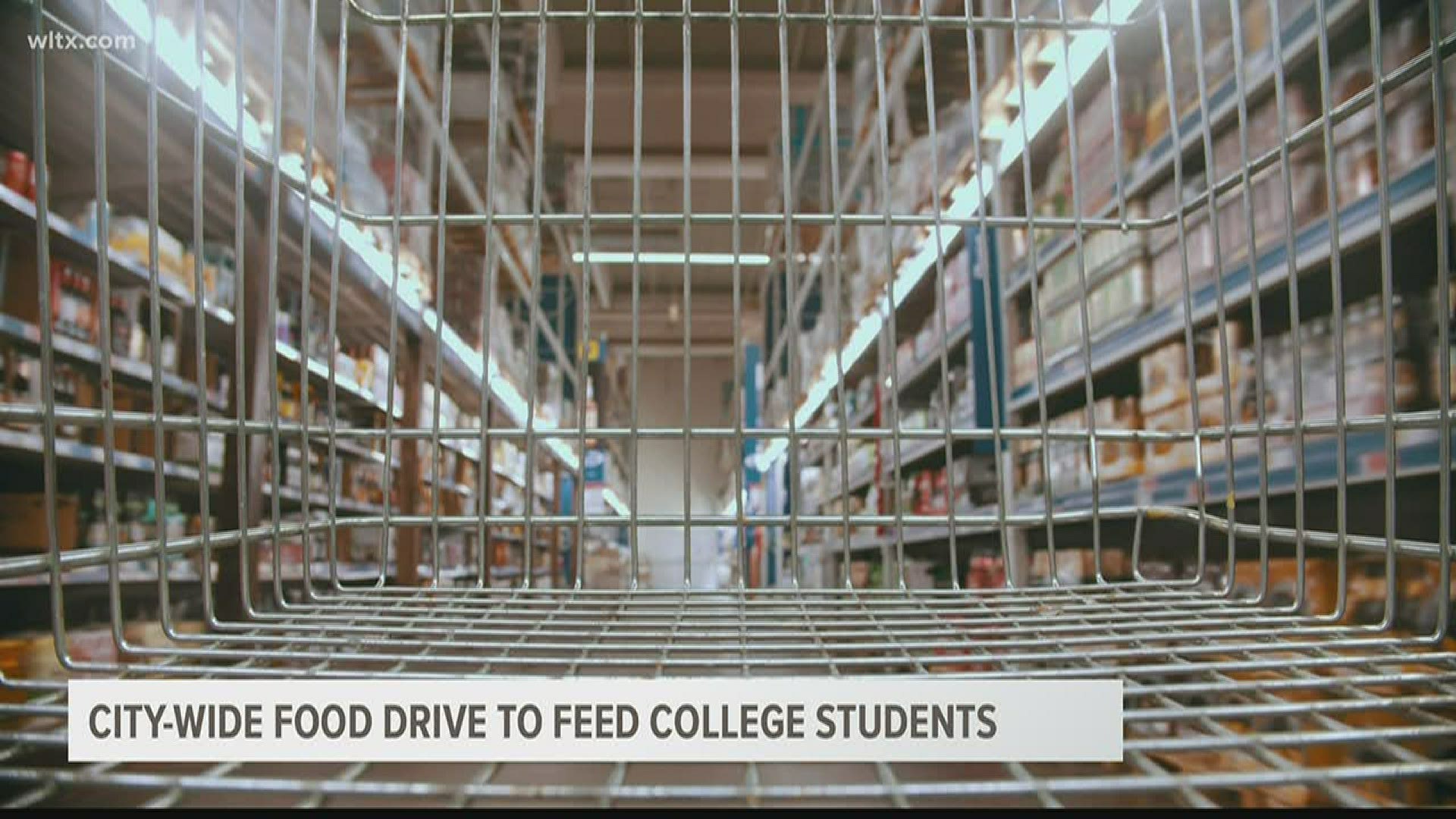COLUMBIA, S.C. — More and more college students around the country can't afford a nutritious meal.
It's an issue that's grown more problematic since the pandemic hit the restaurant and retail industry, where many students work.
To feed a great need, five local colleges and universities are teaming up for a city-wide food drive.
"There's always jokes about, 'Well, I eat Ramen and peanut butter and jellys or whatever through college. That's just part of college.' It really isn't and it shouldn't be," said Megan Michener, Coordinator of Service and Civic Engagement for USC's Leadership and Service Center.
For college kids, food insecurity shouldn't be a right of passage.
"It's not a secret issue, said Dr. Tamara Burk of Columbia College. "It's just not a common knowledge issue."
For many students, going hungry is a reality.
After a jam-packed day of classes and working multiple jobs, they're going home without enough food.
"Not all college students come from middle and upper-class families. For example, some students are the first in their family to attend college. They work full-time jobs while attending school to support themselves and their families," said Dr. Joseph Ray, Acting Director for Counseling and Placement at Allen University.
This Spring, the problem got worse thanks to COVID-19. For example, while millions were getting $1,200 stimulus checks, many students did not qualify because they were considered dependents on their parents' taxes.
"We assume that all college students had to go home and live with their parents," said Burk. "We have plenty of college students who are grown but not grown and don't necessarily have a home to go to. That means that providing the very basics can be a huge challenge."
Dr. Burk is the Professor of Communication and Leadership at Columbia College and Director of the Center for Leadership and Social Change and the P.L.A.C.E. (Philanthropy Leadership and Community Engagement) Fellowship Program.
She says Columbia College lies in a food desert, located in the 29203 zip code. She explained how many students don't have any means of transportation. When the dining hall is closed, these students don't have ready access to food.
That's why colleges and universities around the country have their own food pantries.

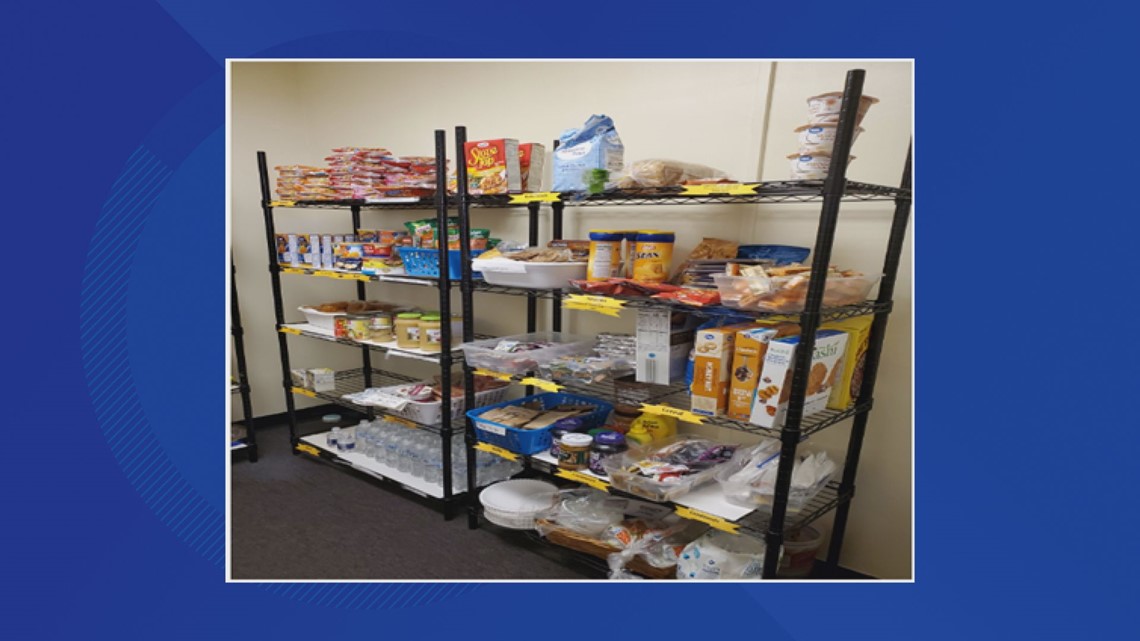
Columbia College, for example, has the Koala Pantry and mobile pantries all over campus.

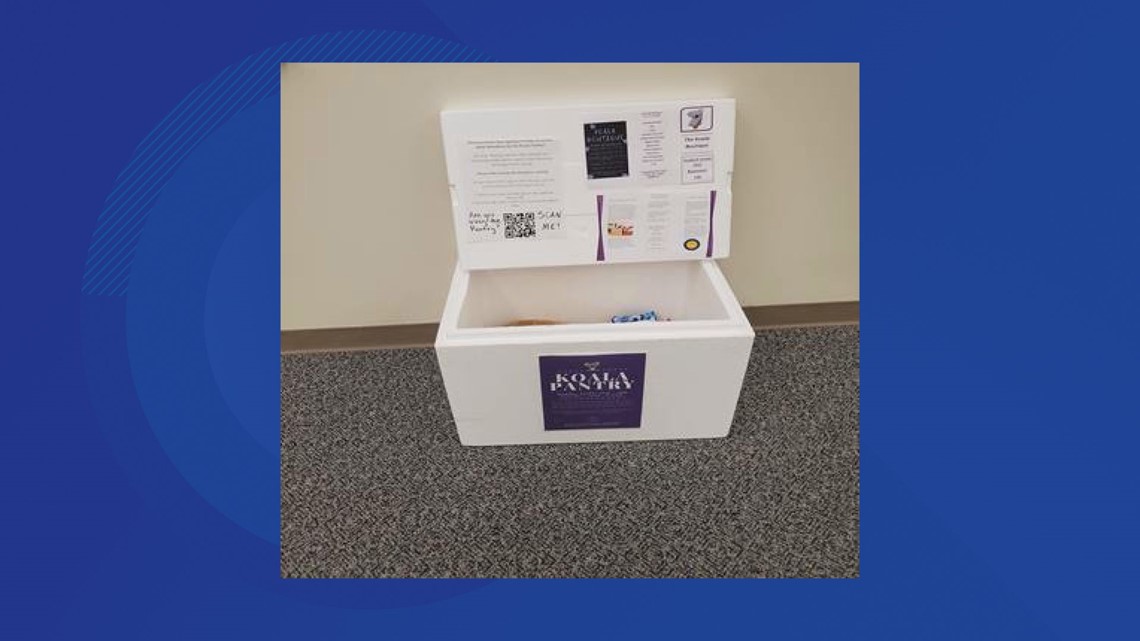
"Between 20% and 50% of all college students in the United States experience some form of food insecurity, and this figure is far greater than the food insecurity rate among the general population, which is around 12%," said Ray.
Allen University opened their food pantry in 2019.
"During our first week of operation, we started in April 2019, we served on the first day 300 students," said Ray.

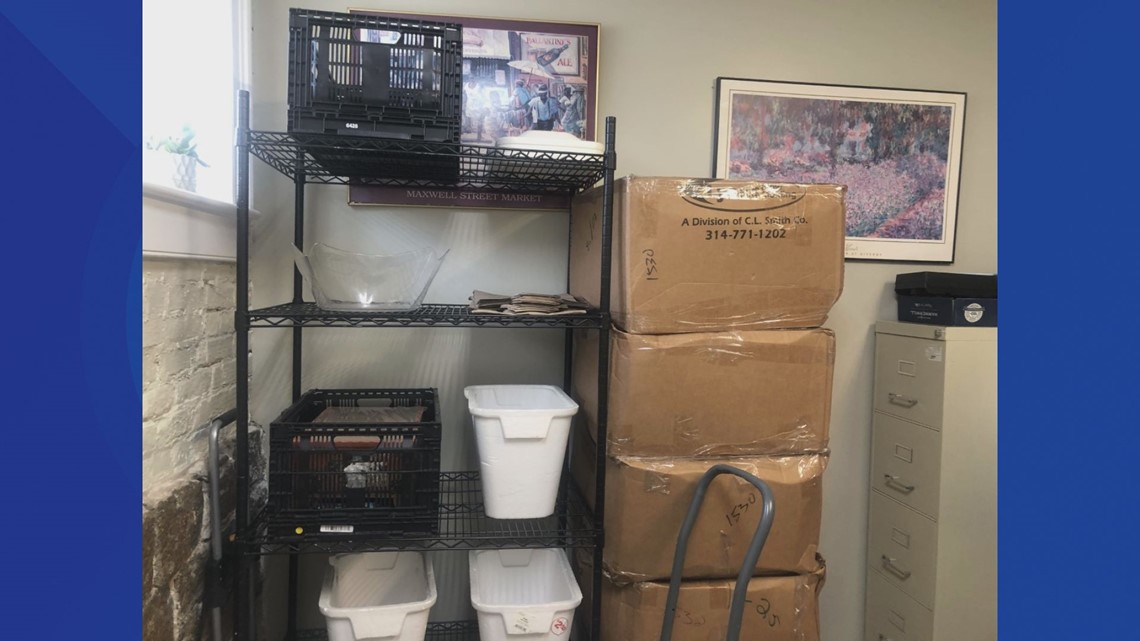
He says last fall, they averaged 150 food bags delivered every week to students. That adds up to a little over 2,500 bags with nutritious food options delivered in one semester.

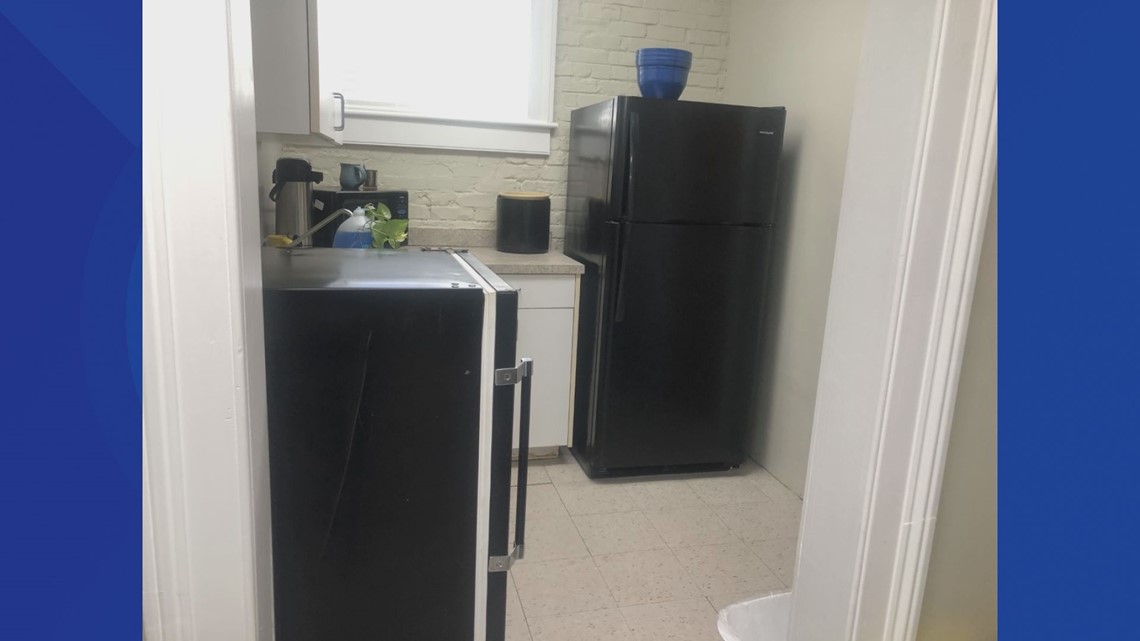
"With the COVID pandemic, our pantries have been wiped out. If they were struggling before, they're definitely struggling now," said Michener. "We don't want them walking into a pantry with empty shelves, with nothing to choose from when they're going hungry. You can't focus on your academics when you don't know where your next meal is coming from."
At the Gamecock Pantry, in the Spring semester alone, they averaged around 100 visits per week.

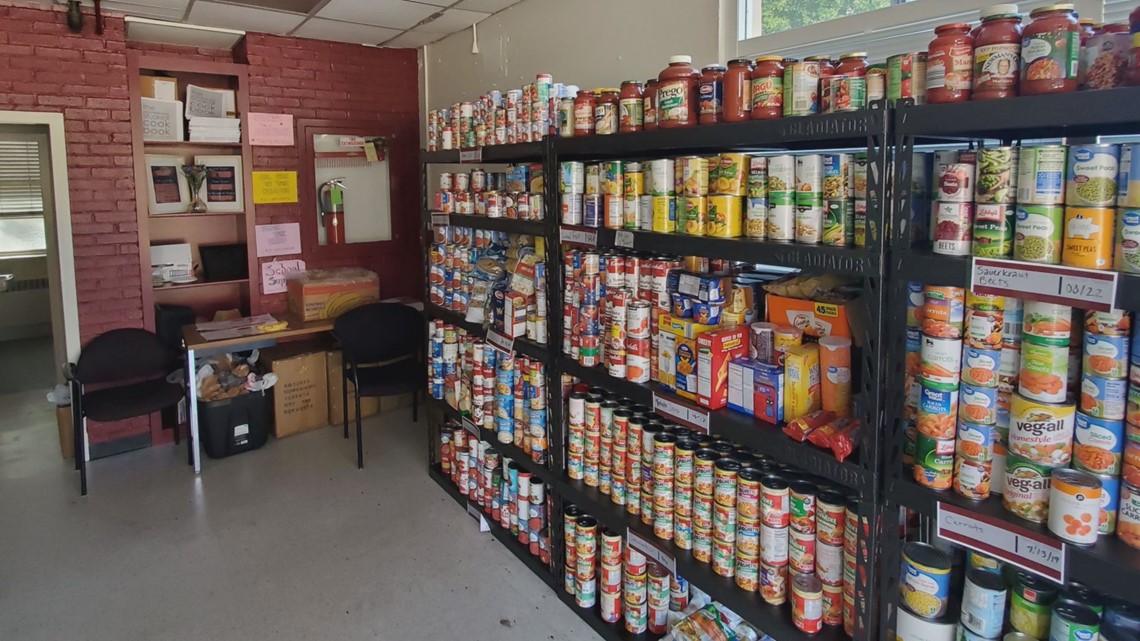
The level of food insecurity in Columbia inspired the creation of the College Food Insecurity Subcommittee, formed from the Columbia Food Policy Committee.
It's a collaboration between 5 groups: Columbia College, Allen University, Benedict College, USC's undergraduate program and the USC Law School.
"What we get is a great sample and a good mixture of what all colleges and universities have to offer," said Ashley Page, Chair of the Columbia Food Policy Committee. "We have HBCU's represented, we have our women's institution represented, we have our big University of South Carolina, but also the graduate school."
The subcommittee found that both undergraduate and graduate students experience some form of food insecurity, which can affect their academic performance and overall well being.
To secure enough stock in their on-campus food pantries in time for the fall semester, they started a city-wide food drive.
"If you've given to Harvest Hope, but you're looking for another, maybe smaller pantry that serves a different population, here's another great place for you to donate food or your funds or these gift cards like we're doing now," said Michener.
Between now and August 14, gift cards can be bought from any Publix or Food Lion that will directly benefit local students at these colleges and universities.
"You want proximity. So for the colleges that are participating, the two nearest grocery stores happen to be Publix and Food Lion. We didn't want to go to a place where distance and transportation may be an issue," said Page. "It's kind of simple, but a big deal for these five institutions."
If you'd like to donate, you can buy an e-gift card from Food Lion from the comfort of home. You can e-mail it to columbiascfpc@gmail.com.

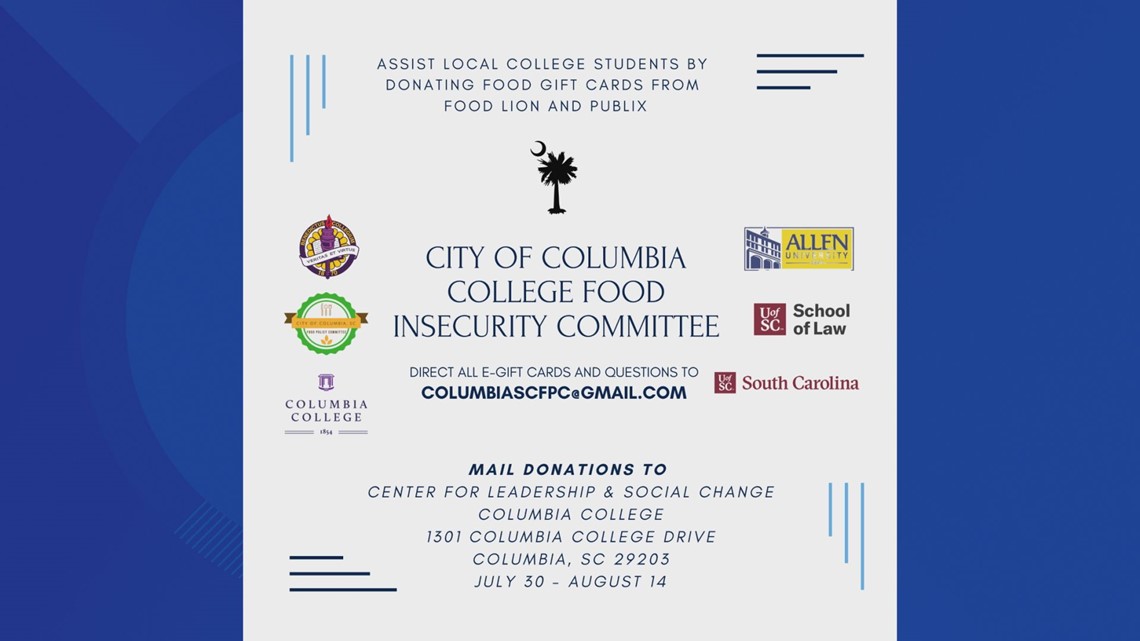
If you'd like to purchase a gift card from Publix, you can mail it to:
Center for Leadership & Social Change
Columbia College
1301 Columbia College Drive
Columbia, SC 29203
Gift cards can include any amount. When the food drive is complete, all gift cards will be evenly distributed to all five schools.
If any sponsors are interested in helping stock these local pantries, please reach out to the subcommittee. Other local colleges and universities are also welcome to join the group.

